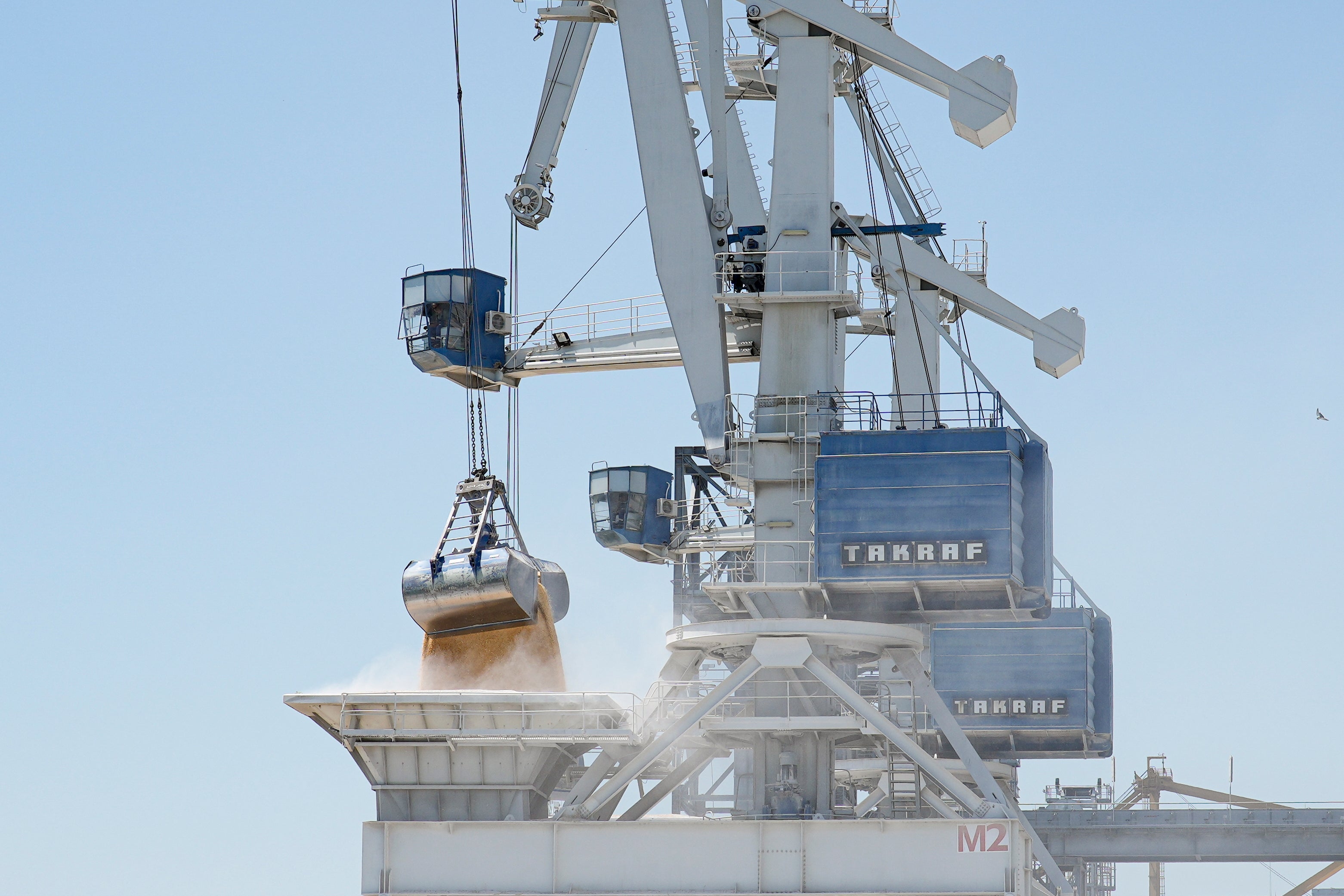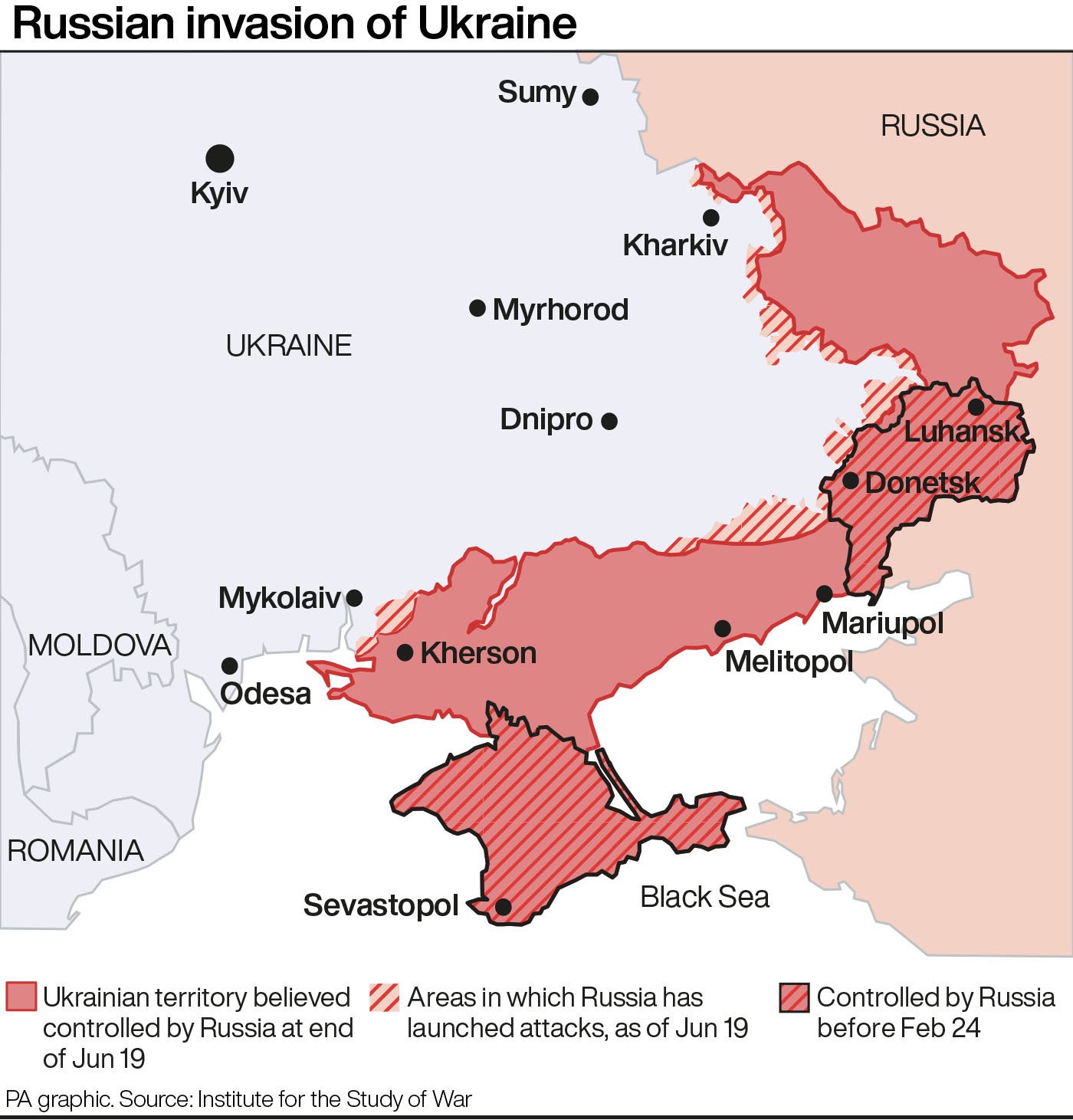UN plan to get grain out of Ukraine doomed to fail, says Boris Johnson
The invasion of Ukraine by Russia has compromised world food supplies.

Your support helps us to tell the story
From reproductive rights to climate change to Big Tech, The Independent is on the ground when the story is developing. Whether it's investigating the financials of Elon Musk's pro-Trump PAC or producing our latest documentary, 'The A Word', which shines a light on the American women fighting for reproductive rights, we know how important it is to parse out the facts from the messaging.
At such a critical moment in US history, we need reporters on the ground. Your donation allows us to keep sending journalists to speak to both sides of the story.
The Independent is trusted by Americans across the entire political spectrum. And unlike many other quality news outlets, we choose not to lock Americans out of our reporting and analysis with paywalls. We believe quality journalism should be available to everyone, paid for by those who can afford it.
Your support makes all the difference.Boris Johnson said the United Nations’ plan to get the grain out of Ukraine is a “non-starter” because Vladimir Putin will continue to use food supply as a bargaining chip to ease sanctions.
The prime minister argued that allies need to now consider “plan B”, as he pledged British expertise to help de-mine the Black Sea and provide further weapons.
Mr Johnson wants to offer insurance for commercial vessels to help free the 23 million tonnes of grain trapped by the Russian president’s blockade.
The UN is trying to alleviate a global food crisis by calling on Nato member Turkey and Russia to agree a safe corridor for exports.
But Mr Johnson was downbeat on the plan. “The problem is that Putin is going to use that as a pretext, as a way to try and get sanctions relaxed,” he told reporters.
The PM added: “And he is going to say I’ll let the 23 million tonnes of grain out if you’ll go easy on this, this and this. I don’t think that’s a runner.”
Mr Johnson said he would discuss with a “plan B” with G7 and Nato leaders this week. He said it was vital to “find ways of empowering the Ukrainians to control the sea lanes from the shore with various bits of kit”.
He added: “And there are two things in particular which the UK has expertise in. One is de-mining, remote de-mining, and the other is insurance of commercial vessels in contested waters and how to make it possible for people to take on that job.”
Mr Johnson said Britain is still in talks with Ukrainian president Volodymyr Zelensky and the Turks to get an agreement.
“At some stage the world is going to have to move from Plan A which is the UN plan with Russian help, which I think is probably going to be a non-starter, to a plan B,” he added.
The PM insisted Turkish president Recep Tayyip Erdogan “definitely wants the grain out” when asked if he is too close to the Putin regime.

Mr Johnson was in Rwanda discussing the grain crisis with leaders at a Commonwealth summit and is travelling on to G7 in Germany on Sunday, before heading onto Nato meetings in Spain.
The PM also said Ukraine is at a “critical point” in the war where it appears that the Russians are “running out of puff”. But he warned against any attempt to push president Zelensky into a “bad” peace deal.
He warned allies against becoming “exhausted with this thing”, arguing it would be a “disaster” for the world if Mr Putin wins ground.
He said: “Just mincing, mincing up the Ukrainians, let me choose a better word, can you strike mincing out, just keep grinding forward, that’s a better way of putting it, keep grinding forward, that’s a better way of putting it. That is the risk.”
Foreign secretary Liz Truss was also warning against getting “tired” support for Ukraine, as she warned against a peace deal that would be a “concession” to Moscow.
After holding talks with Turkey in Ankara, she told reporters in Kigali that “we’ve only got a month to do this. My concern is that Russia is currently prevaricating”.
Meanwhile, the UK, US, Canada and Japan will ban imports of Russian gold in the latest stage of the effort to cripple Russia’s economy in response to the war in Ukraine.
Gold exports were worth £12.6bn to Russia in 2021, Downing Street said. Its importance has increased since Putin’s invasion of Ukraine as oligarchs have rushed to buy bullion to avoid the impact of sanctions.




Join our commenting forum
Join thought-provoking conversations, follow other Independent readers and see their replies
Comments